India is home to a varied range of mythological places, cultures, traditional beliefs, and customs. It is also home to many wonders and tales that have hooked up the world for a long time now. Even though the glorious old ages are long gone, the towns and the legends from that time still exist. The Mahabharata, the Ramayana, and ancient texts like the Puranas, Vedas, and Upanishads are where the majority of India’s myths and tales originate.
The fact that many locations are mentioned in ancient literature also inspires curiosity and encourages investigation. If you enjoy tales, folklore, and mythology, you must visit places with connections to Hindu mythology. Our hand-picked list of places mentioned in Hindu mythology will intrigue you even more if you’re interested in studying the murky line between reality and fiction.
Table of Contents
India’s Mythological Places
India, a land steeped in mythology and ancient lore, boasts a plethora of captivating destinations that are steeped in legend and tradition. From the sacred banks of the Ganges River in Varanasi to the mystical caves of Elephanta Island near Mumbai, these mythological places offer a glimpse into the rich tapestry of Indian culture and history.
Explore the legendary city of Ayodhya, believed to be the birthplace of Lord Rama, or journey to the awe-inspiring temples of Khajuraho, adorned with intricate sculptures depicting tales from Hindu mythology. Whether you seek spiritual enlightenment or simply wish to immerse yourself in the timeless tales of gods and goddesses, India’s mythological sites promise an unforgettable and enlightening experience.
1. Prayagraj

The confluence of the rivers Ganga, Yamuna, and Sarasvati is where Allahabad, now formally known as Prayagraj, is located. It is thought that Lord Brahma made his first sacrifice here after creating the universe.
The Kumbh Mela, the greatest gathering of worshippers in the world, is held there as well. The 8th century, according to the philosopher Shankara, is when this mela first began. The term “Kumbh Mela” comes from a Hindu myth in which the Devas (gods) and Asuras (demons) battled over a pot of Amrit (the nectar of immortality), also known as the “Ratna of Samudra Manthan,” or “Kumbh.” While moving the Kumbh, it is said that Lord Vishnu dropped a few Amrit drips at four different locations. The four holy locations of Prayag, Ujjain, Haridwar, and Nashik received the amrit, which turned the associated rivers into amrit.
2. Shani Shingnapur
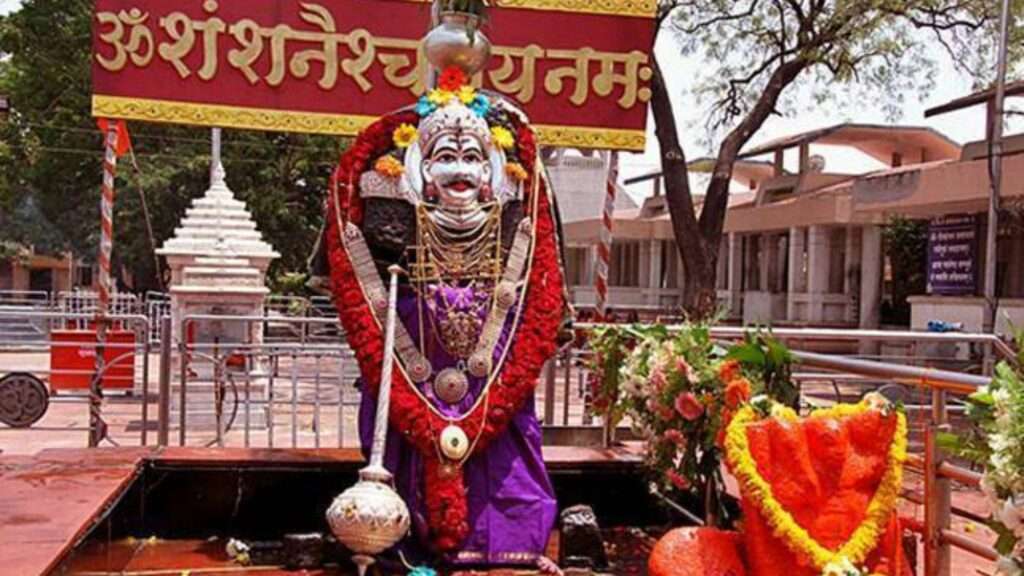
Ahmednagar, located in the state of Maharastra, is home to the village of Shani Shingnapur. In this village, Lord Shani was worshipped. The peasants’ confidence in Lord Shani has given them a great deal of security. They had faith that Lord Shani would keep their village safe from harm. So none of their homes have front doors built in. It is one of India’s most enigmatic locations. In Shani shingnapur, there are no doors or even door frames on any of the homes, schools, or even commercial buildings in this community, and there have never been any reported crimes.
3. Chitrakoot

Chitrakoot, which translates to “the hills of many wonders,” It has ties to the epic Ramayana and is situated between the states of Uttar Pradesh and Madhya Pradesh. The area, which is bordered by the Mandakini River, is home to numerous old lava fields, numerous rivers and lakes, as well as forested hills.
According to legend, after being exiled from Ayodhya, Lord Rama sought sanctuary in the Chitrakoot jungles with Sita, his sister, and Lakshmana. Over the course of their 14-year exile, they stayed here for more than 11 years. This is also allegedly the location of “Bharat Milap.”
4. Puri
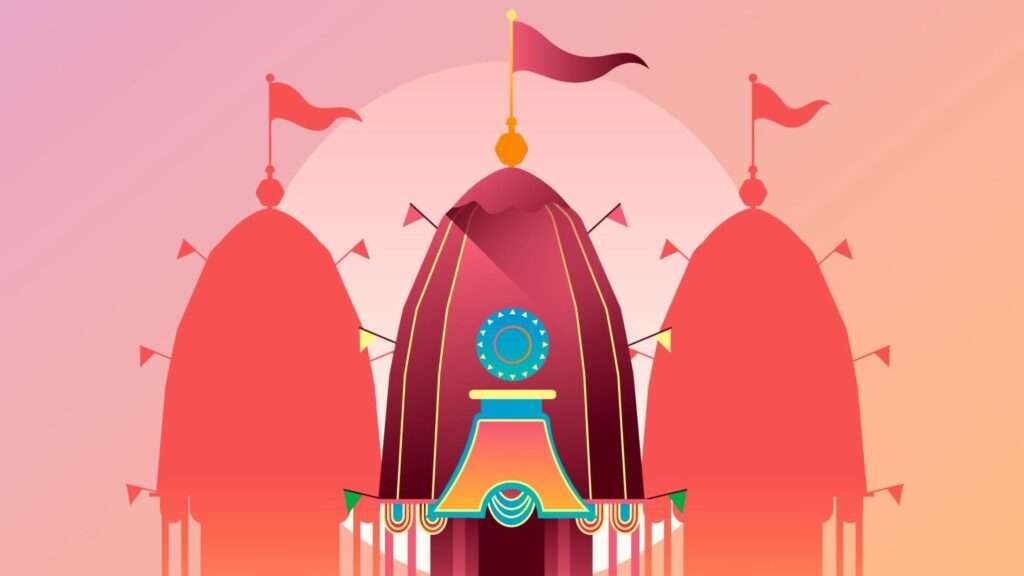
Puri is in the state of Odisha in eastern India. The name Jagannath Puri, which means “The abode of Lord Jagannath,” is another name for it. The Vaishnavas have a tale that claims that Lord Krishna’s mortal bones were left behind after Jara’s illusionary death served the purpose of Lord Krishna’s incarnation. King Indradyumna was instructed by Lord Vishnu to carve an idol of Jagannath out of a log and dedicate Krishna’s bones inside.
The workmen’s god in disguise, Vishwakarma, a Brahmin carpenter, was chosen by the king to chisel the murti. On the one condition that he not be disturbed, he agreed to take on the commission. The king, however, went to the location where Vishwakarma was working because he was eager to view the idol.
This infuriated the carpenter, who abandoned the idol incomplete and lacking hands and feet. The angry monarch begged Brahma for assistance, and the god made him a promise that the incomplete idol would rise to fame and be worshipped exactly as it had been carved. The well-known Jagannath Temple is the outcome of this.
5. Haridwar

Haridwar, which is in the state of Uttarakhand, is one of the locations where the Ganga touches the plains after coming from the mountains. It is one of the ancient cities that is referenced in numerous Puranas and Upanishads and is significant to both Shiva and Vishnu worshipers. The powerful river is said to have been released by Lord Shiva from the tresses of his hair.
Haridwar, is one of the seven holiest cities for Hindus. Around Har-ki-Pauri, devotees congregate to worship Goddess Ganga. The Ardh Kumbh Mela is celebrated here every six years. It is said that your wishes would come true if you pray at the Mansa Devi temple on the mountaintop.
6. Dandakaranya
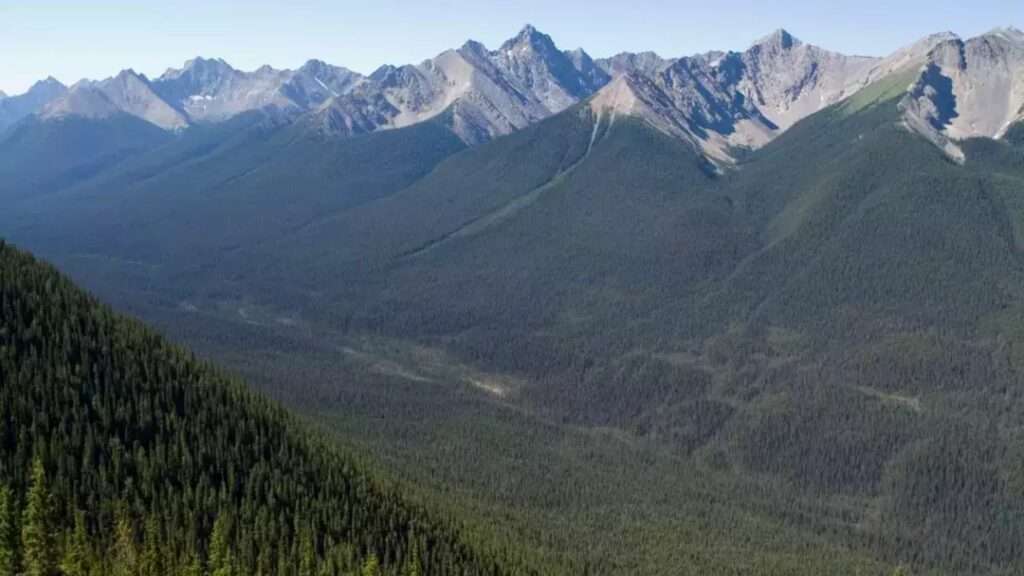
Dandakaranya is a Sanskrit term that approximately translates to “the jungle of punishments (dandakas)”. It is a sacred area for Hindus and is situated in Chhattisgarh’s Bastar district. Lord Rama travelled through this fabled woodland during his exile. It is known as the Dandak Forest (the home of demons and dangerous creatures) in the Ramayana.
Surpanakha first encountered Lakshmana, the brother of Lord Rama, here and developed feelings for him. She ordered her brothers Khara and Dushan to attack Lakshman after he rejected her and hacked off her nose. You already know the ending, but you must at least once in your life travel to this holy region.
7. Cherrapunji
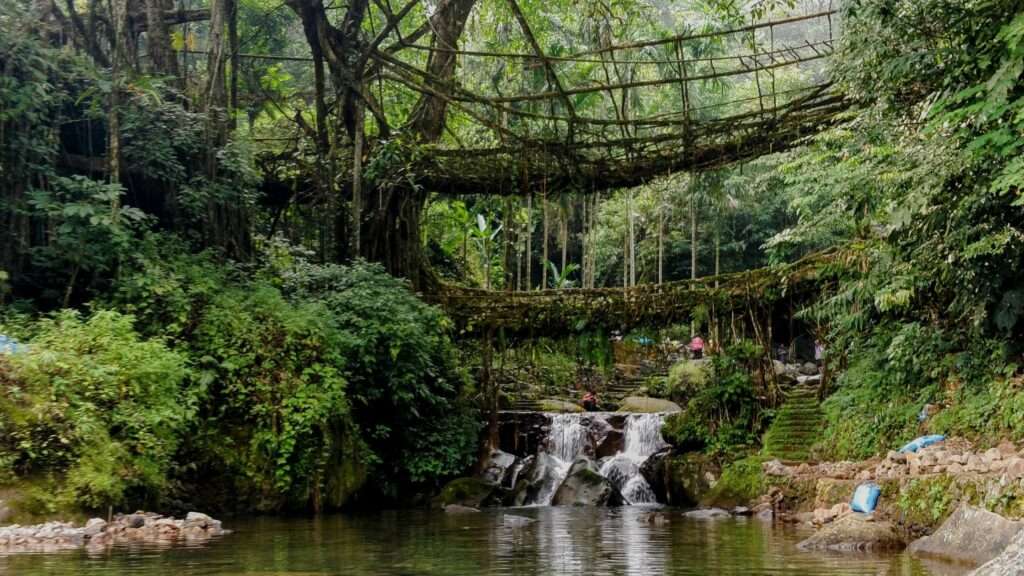
The Khasi and Jaintia Hills in Cherrapunji have an intriguing arrangement of trees along their gradients. A rubber tree can be seen growing over the slope with roots that extend 3000 feet. The trees’ clinging to the higher ground and their extensive roots that reach the riverbed help to naturally span the rivers. This Mysterious spot in India instantly mesmerizes visitors.
The puzzle is how the native people came across this method and were able to develop it through time. Some assert that the method was learned by trial and error, while others think it was passed down orally from one generation to the next.
8. Veerabhadra Temple
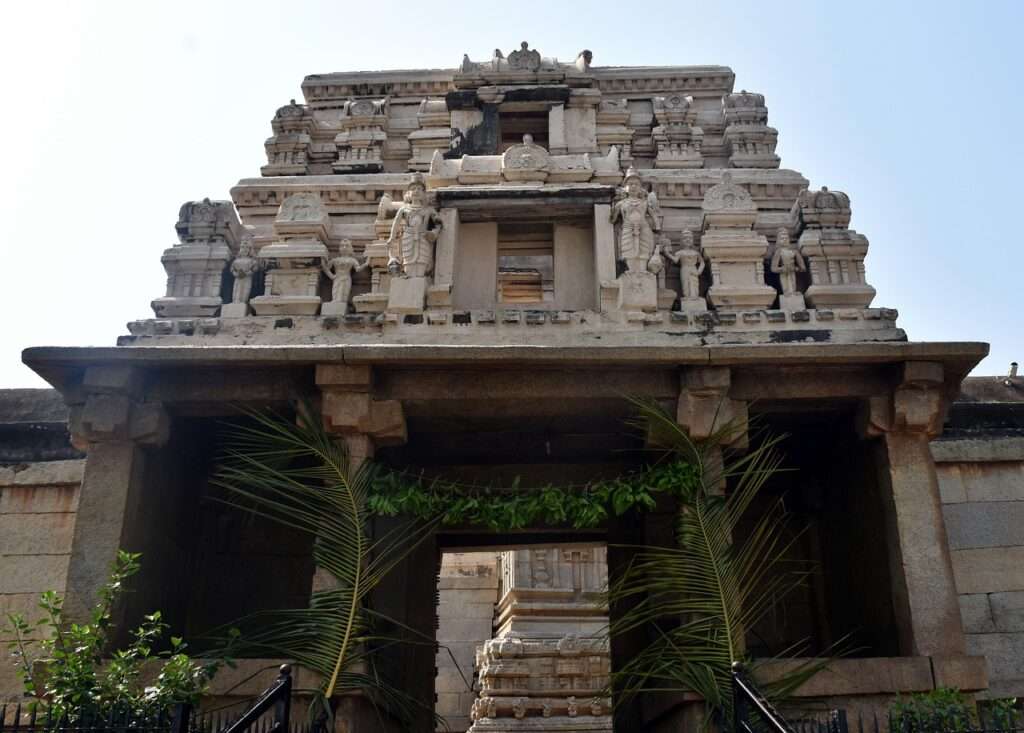
The intriguing hanging pillar in India is located in Lepakshi, Andhra Pradesh, at the Veerabhadra Temple. The temple was built in the 16th century during the Vijayanagara Kingdom and is renowned for its exquisite sculptures and architecture. The enigma of the hanging pillar is caused by one of the temple’s pillars, which appears to be suspended in midair without any discernible support. In the temple’s main hall, guests can check to make sure the pillar is not touching the floor by passing a little piece of paper or cloth beneath it.
9. Hampi

Karnataka’s Hampi is a UNESCO World Heritage Site. The biggest draws in this area are the temples that date back to 1500 AD. The name “Hampi” developed from the ancient name for the river Tungabhadra, “Pampa.” Pampa, who was devoted to Lord Shiva, is thought to be the daughter of Lord Brahma. It is a country rich in folklore, and the Ramayana claims that Lord Hanuman was born on Anjaneya Hill. Don’t forget to stop by the Yantrodharaka Temple while you’re here.
Its name comes from the Lord Hanuman figure that is kept inside an amulet. You can make out a carving of 12 monkeys grasping tails of one another if you look closely. This carving is thought to depict the twelve days that Sri Vyasaraja prayed to Lord Hanuman before receiving his blessings.
10. Rameshwaram

Rameshwaram is revered by Hindus as a sacred site in Hindu mythology. According to legend, Lord Rama constructed the Ramsetu bridge, a floating stone bridge connecting Lanka and India, to save Goddess Sita from the evil king Ravana who had kidnapped her. And after killing Ravana, Lord Rama performed his penance here. There is a notion that visiting Rameshwaram is a necessary component of each Varanasi pilgrimage.
Also read:


